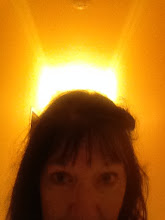Wittgenstein and Terence return to the camper, with the shopping.
Gaius is already there.
Any frogs? asks Wittgenstein.
Not yet, says Gaius. Perhaps later on, in the evening.
We met our guest in the supermarket, says Wittgenstein.
Did you discuss dinner? asks Gaius.
We did, says Wittgenstein. He plans to bring oysters.
Roo-kai will be happy, says Gaius.
Guess what? says Terence. He's called Haruki.
I'll try and remember that, says Gaius.
And he's pretending he isn't an otter, says Terence.
I met him, says Gaius. He isn't an otter.
No he isn't, says Wittgenstein. Look, I bought walnuts.
For the salad? says Gaius. Well done, Ludwig. I forgot to mention the walnuts.
I hope we have enough plates, says Wittgenstein.
He starts opening cupboards.
That reminds me, says Wittgenstein. Hinges.
What about hinges? asks Gaius.
One of the parallels, says Wittgenstein. Neat, isn't it?
I'm not with you, says Gaius.
It's like an umbrella, says Terence. You float down to earth under it.
That is a PARACHUTE, says Wittgenstein. I knew you had no idea.
A parallel is a similarity, says Gaius. As Ludwig has mentioned hinges, I'll use hinges as an example. These cupboards have hinges. As does this walnut.
He picks up a walnut.
I don't think walnuts have hinges, says Wittgenstein. You crack them open and they come apart, into two halves, unattached by hinges.
If you're lucky, says Gaius. About the two parts.
He tries to crack the walnut, with a knife handle.
But the walnut remains intact, as an example of its own singularity.
On reflection, a walnut is a not a good example, says Gaius. But if I could just crack it open, and if it should fall fortuitously into two parts, I could join the two parts together with a wire filament, which would then demonstrate the parallel.
Surely you have better things to do, says Wittgenstein.
I certainly do, says Gaius.

No comments:
Post a Comment